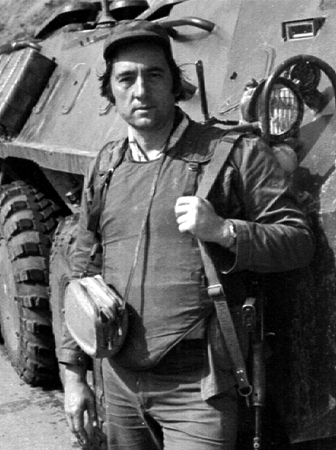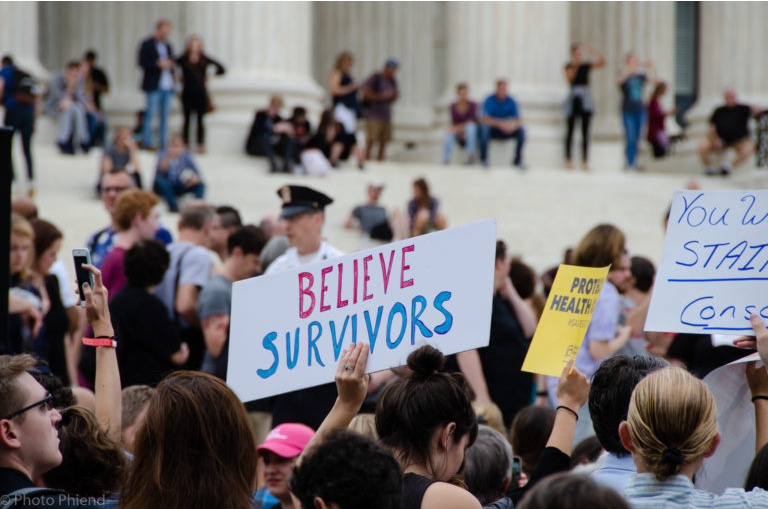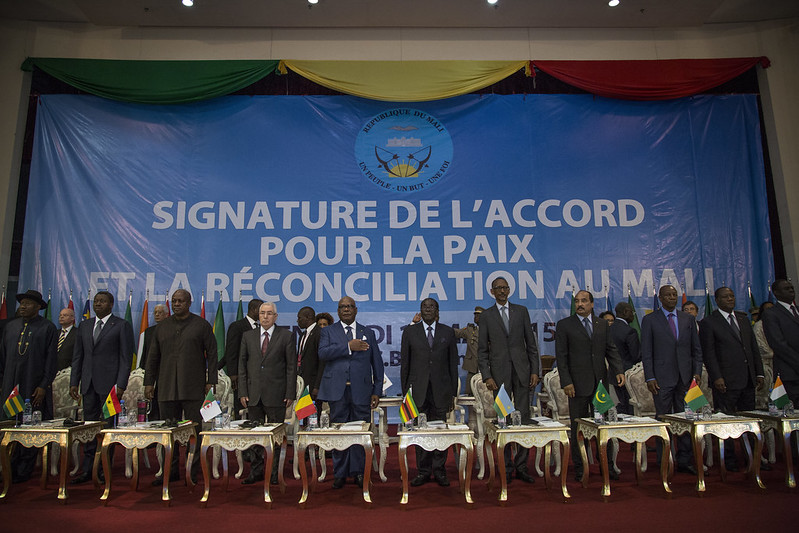


Refusing Down’s Syndrome Screening: A Reasoned Choice
27 November 2022
Schoolyards: An Answer to Climate Challenges?
13 December 2022If there is a Russian intellectual who has theorised the cultural ideology behind Putin’s Russia, it is Alexander Prokhanov. Juliette Faure, a doctoral student at the CERI, has devoted her research to this complex man’s tortuous path.
In her article “A Russian Version of Reactionary Modernism: Aleksandr Prokhanov’s « Spiritualization of Technology »”, published in the prestigious Journal of Political Ideology and awarded the Michael Freeden Prize, she traces his sources of inspiration and evolution, and introduces us to his dream of a protean Empire. Interview.
Before becoming a key player in the cultural patriotism promoted by Vladimir Putin, Alexander Prokhanov followed an original path. As a young adult, he was a decadent Dadaist, leaning towards mysticism. Did this period play a role in the development of his current discourse?
Boris Kukuliev & Kaleria Kukulieva, Between Heaven and Earth, 1987 (miniature of Palekh)
Juliette Faure: Absolutely. His student years in the USSR of the 1960s decisively shaped his intellectual identity. Khrushchev’s Thaw marked a decade of openness in Soviet intellectual life, with the circulation of works from pre-revolutionary Russian philosophy, and from Western Europe and Asia. While studying engineering at the Moscow Aviation Institute, Prokhanov frequented the literary and bohemian circles of the intelligentsia, where he was introduced to Dadaist poetry, to the traditionalism of the writers René Guénon and Julius Evola, to Indian sacred texts such as the Mahabharata, and to Gnosticism and magic. These encounters unfolded in an atmosphere of anti-conformism, decadence, and rejection of Soviet ideology. Prokhanov’s discourse emerged from this intellectual eclecticism behind closed doors. It did not reflect a desire for analytical theorising, but rather an amalgam of subversive concepts, in opposition to the monolithic block of official Marxism-Leninism.
Yet after scorning the Soviet Union, he became a fervent supporter. How did this conversion occur?
J. F. : Two key events at the beginning of his career set him on this course. First, he decided to abandon his engineering studies. This was followed by a period of wandering, where he joined a group of architects and intellectuals working to restore medieval churches in the city of Pskov, which had been destroyed during World War II. There he developed his passion for the cultural and spiritual heritage of Tsarist Russia. Then he isolated himself for several years in a small town an hour and a half from Moscow – Istra – where he worked as a forester and forged the style of his first book, which celebrated the ancestral folklore of pastoral Russia. The book fully aligned with the most popular Soviet literary trend at the time: ‘village prose’, which distinguished itself from Soviet realism by praising traditional Russian peasant life. The career switch from engineer to writer led him to journalism. One of the most prestigious literary newspapers, Literaturnaia Gazeta, recruited him in 1968 and sent him as a reporter to cover the Russian-Chinese conflict that broke out in 1969 at the border between the two countries, on Damanski Island. This was the second key turning point. Prokhanov enthusiastically served as a war reporter with the Soviet army. He then made it his vocation and covered all the USSR’s war fronts, from Namibia to Afghanistan, earning him the nickname of ‘army bard’. His articles praised the military and technological power of the Soviet army and a military ethos of sacrifice for the fatherland and a ‘common cause’. However, this turning point was not deemed to contradict his nonconformist youth. On the contrary, Prokhanov aggregated these various identities to form a new type of ideological language combining religious conservatism, technological modernity, and Soviet patriotism.
It is a rather peculiar cocktail… What does it mean?

Prokhanov in Afghanistan. Source: unknown
J. F. : As a reporter for Literaturnaia Gazeta, Prokhanov developed a particular style of war literature that sought to ‘spiritualise technology’. He drew on ‘Russian cosmism,’ a school of thought formed by philosophers and scientists at the turn of the 19th and 20th centuries and rediscovered by Soviet scholars in the 1970s. Instead of pitting science and religion against each other, cosmist thinkers believe that technological advances can fulfil biblical beliefs, including the resurrection and immortality of the flesh. Prokhanov became acquainted with cosmist authors in the 1960s, including Nikolai Fyodorov, Vladimir Vernadsky, and Konstantin Tsiolkovsky. He cited them by name to support his drive to reinvigorate Soviet modernity by combining spiritual and messianic dimensions with industrial and military power. He formed this discourse in reaction to Western theories of modernisation which, from the 1960s onwards, predicted that the post-industrial development of the USSR and Western societies would lead to their convergence towards a single model of liberal modernity. Prokhanov thus sought to form a third way between the two currents dominating the intellectual scene in the 1970s: on the one hand, the ‘village prose’ nostalgic for the Russian past and critical of technological progress, and on the other, the liberal-reformist current associating the country’s technological modernisation with its liberalisation and democratisation. On the contrary, Prokhanov asserted that technological progress could combine with traditional and religious values specific to Russia and serve the power of a Stalinist-type authoritarian state. The challenge was to preserve the specificity of the Soviet model of modernity and its cultural and military confrontation with the West.
Prokhanov became involved in politics under Gorbachev. He joined an electric group uniting all opponents of liberalism: communists, right-wing extremists, and religious people. He then came out of the shadows. How to explain the success of this group?
J. F. : Indeed, Prokhanov was one of the intellectuals who organised a platform of opposition to perestroika’s second phase of reforms, launched in 1986 under the umbrella of ‘glasnost’ (transparency). Gorbachev explicitly supported the camp of the reformist liberals, who won a majority in the Communist Party and were appointed to run the largest newspapers at the time. An anti-liberal coalition then formed on the fringes of political and intellectual circles, bringing together conservative intellectuals and anti-reformist members of the political and military establishment. Prokhanov became one of its main theorists and promoters. By founding the newspaper Den (Day) in 1990, he created a social and doctrinal meeting place for these authors across the spectrum of ideological paradigms, including Stalinism, monarchism, Eurasianism, Orthodox conservatism, nationalism, and traditionalism… However, the anti-liberal coalition struggled to win the support of the popular masses. It was defeated by the liberals in the first multiparty elections held in March 1990 to elect the parliament of the Russian Soviet Federative Socialist Republic. The liberal reformist camp retained media and political hegemony until 1991.
After a decade in the wilderness, he returned with a novel entitled ‘Mister Hexogen’, which received the National Bestseller Award in 2002. What did this award mean to him?
J. F. : Yes, against all odds, a highly reputable house among Russian intellectual elites published Prokhanov’s novel ‘Mister Hexogen’, which was also awarded a prize. Prokhanov’s new recognition and legitimacy are attributable to several factors. First, his ideas gained popularity among the elites and the public in the early 2000s. Indeed, following the Russian economic crisis of 1998, the NATO bombing of Serbia without a UN mandate, and the expansion of NATO to Hungary, Poland, and the Czech Republic in 1999, criticism of liberalism, capitalism, and American hegemony over the international order spread. Prokhanov, who had focused on feeding the most negative stereotypes of post-Soviet Russia (corruption of the elites, theft of the country’s resources by oligarchs, manipulation of opinion by media moguls), found a new audience in this atmosphere of rejection of the legacy of the 1990s. The publisher’s new appreciation of Prokhanov’s work testifies to the about-face of liberal intellectuals, who had previously been enthusiastic about imitating the ‘European model’, but now embraced Prokhanov’s specifically Russian response to the ‘crisis of liberalism’. While retaining its intellectual left-wing identity, this fringe of the former liberal elite no longer wished to imitate the West, but to promote a popular national culture. At the same time, Vladimir Putin, who came to power in 2000, returned to an authoritarian practice of state power and restored control and patronage of artistic and cultural life. A moral crusade, led by para-state movements funded by the presidential administration, targeted Russian postmodern writers with censorship and public disapproval, and promoted so-called “patriotic” writers in their place. These two trends emanating from political and intellectual circles helped move Prokhanov’s discourse from the margins to the centre of the public arena.
Following the Orange Revolution in Ukraine (2004–2005), he became an unconditional supporter of Vladimir Putin and flooded the media. It is notably through his fictional novels that he disseminated his conception of a Russian renaissance. What does this conception involve?
J. F.: According to Prokhanov, the imperial form is a constant in the history of the Russian state. He distinguishes four historical periods: first the empire of Kievan Russia, then Muscovite Russia, followed by the empire of the Romanovs, and finally the Soviet empire. From 2006, Prokhanov theorised the concept of ‘fifth empire’. After the period of catastrophe and tragedy that he associates with the 1990s, he sees in Vladimir Putin’s regime the signs of a restored strong imperial state. Prokhanov casts himself as a prophet and ideologist of this ‘fifth empire’ which he believes should encapsulate all periods of Russian history by combining both the religious and messianic traditionalism of Tsarist Russia with the industrial, technological and military power of the Soviet Union.
Interview by Hélène Naudet, Sciences Po
Juliette Faure is a young PhD in political science at CERI. She holds a bachelor’s degree in philosophy from Sorbonne Paris IV, a bachelor’s degree from Sciences Po, and a joint master’s degree in international relations (Sciences Po/Columbia University). In addition to the Michael Freeden Prize, Juliette received the second Strategic Thinking Prize from the Higher Council for Strategic Training and Research for her master’s thesis on ‘The political idea of tradition in the discourses of the contemporary Russian regime (2012–2018)’.



